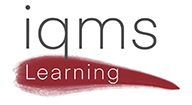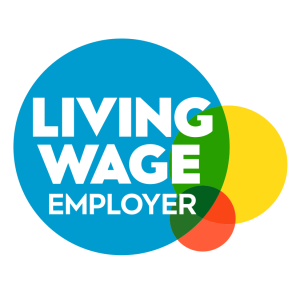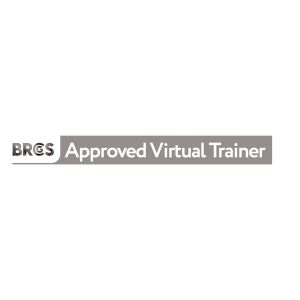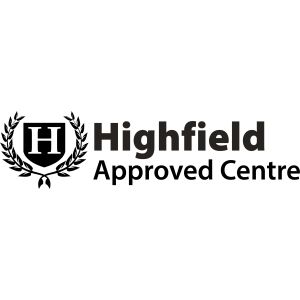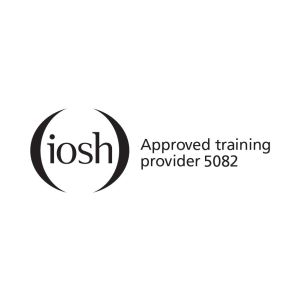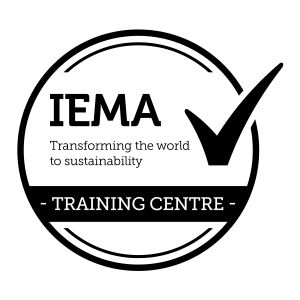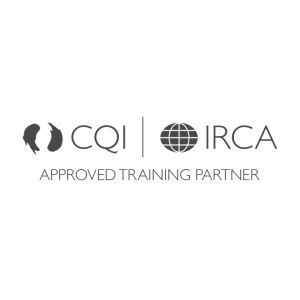With a minefield of legislation on waste, rising waste costs and customer and other stakeholders demanding improvements on environmental performance, this course is part of the environmental sustainability suite of training courses designed to help organisations support their environmental sustainability goals. The course is designed to improve compliance and encourage a culture of more sustainable waste and resource management, however most importantly it will help to reduce your company or organisation’s waste costs. Every organisation has a different way of dealing with their waste based on the type and amount that is produced. This course is aimed at delegates whose role deals predominantly with the management of wastes within their business and whose decisions have the ability to influence a significant level of change within company policy and routine.Duration1 Day, 09.00 – 17.00Who should attend?All those with responsibility for ensuring waste management is dealt with in a legally proper manner and those who are seeking to improve their understanding of the legislation in place on waste. It is also useful for those who are trying to improve their company waste management. Those who are trying to establish waste minimisation initiatives, perhaps as part of their sustainability goals or in companies with ISO 14001 as part of their continual improvement programme.Course content· Waste as a resource· How to demonstrate improvements· What is waste?· Managing resources and waste in the workplace· Legislation and ensuring compliance· Understanding and applying the waste hierarchy· Completing waste documentation· The cost of managing waste· How to identify opportunities for waste minimisation in the workplace· How to manage a successful waste minimisation working groupWhat are the benefitsBenefits include:· The knowledge to help you identify improvements in resource and waste management· The understanding of where and how to make those improvements· The skills to implement those improvements and demonstrate their impact to othersIn-House CoursesOffering better value for money, they can be designed to closely match your specific requirements.Style of Delivery and Course LeadersOur course tutors are approved training providers, approved by BRCGS, IRCA, RSPH and IEMA. They are qualified and experienced with extensive practical knowledge across a wide range of sectors including food manufacturing, catering and retail.CertificationAll delegates will be awarded a certificate verifying attendance and completion of the course.
Practitioner Courses
This two-day IEMA certified Environmental Sustainability Skills for Managers is designed to provide supervisors and managers with a strategic and operational overview of environmental sustainability as it affects their specific industry and work area. This course is invaluable in giving managers at all levels the confidence to get involved in, and fully engage in your organisation’s environmental sustainability challenges. Topics covered include: the understanding of the strategic opportunities and constraints that environmental sustainability presents organisations the importance of resource efficiency the impact of environmental sustainability across the value chain the impacts of pollution, prevention, control and environmental legislation in organisations how employees support environmental sustainability. Duration2 Days, 08.30 – 16.45Who should attend?This course is ideally suited for supervisors and managers across all sectors and has no formal entry requirements.Course objectivesThis course will equip delegates with knowledge of the key concepts and building blocks of sustainability in business and develop relevant skills to be able to apply sustainable development within their own business.Course content Understand the main environmental and economic risks and opportunities Understand compliance obligations and business drivers for change Understand the main potential impacts on environment and sustainability Understand how to improve environmental performance How to evaluate drivers for change and barriers Understand baselines data to monitor and improve performance How to apply knowledge of environmental sustainability across the value chain How to demonstrate the importance of implementing resource efficiency How to demonstrate how employees can improve environmental performance What are the benefitsAttendance will enable delegates to: Decide how best to apply and develop sustainability in their own business Add to their environmental management career credentials Be able to build and support sustainability within their business Improve environmental decision-making Discuss confidently the benefits of a sustainable business with others within their business and to their stakeholders In-House CoursesOffering better value for money, they can be designed to more closely match your specific requirements.Style of Delivery and Course LeadersOur course leaders have substantial experience in the field of environmental management systems. They are qualified and experienced with extensive practical management experience across a wide range of sectors including manufacturing, finance, pharmaceuticals, local and national government. We have extensive experience working across cultural boundaries, through our work in Europe, Africa, the Middle East, Asia and the Americas.CertificationThe assessment for Environmental Sustainability Skills for Managers consists of an online 20 question multiple-choice test. The test is completed through the IEMA assessment portal and candidates are sent a link upon registration to the assessment. Delegates successfully taking the course and passing the course assessment will be awarded an IEMA issued certificate.
The course is delivered through a mixture of a workshop led discussions, practical activities and PowerPoint presentations. On day two delegates are required to undertake a live audit (case study based) where delegates are required to apply the skills and techniques they acquired on day one. Delegates will be given feedback on how they performed during the case study and how they can improve on their auditing techniques.Duration2 Days, 09.00 – 17.00 each dayWho should attend?This course is designed for Quality and Technical Managers, personnel responsible for managing internal auditing schedules and personnel responsible for undertaking internal audits as required by BRCGS Standards.Course objectivesThis course explains the need for an Internal Audit System, the principles and terminology relating to Internal Audits and describes the principles of Internal Auditing.Course content Audit Processes Auditing Overview Auditing Concepts Audit Planning Auditor Attributes The Human Aspects of Auditing Conducting the Audit Reporting the Audit What are the benefitsOn successful completion, delegates will have an improved understanding of auditing concepts and have improved auditing skills. Delegates will also be able to identify any current weaknesses in their Internal Audit Systems and upgrade these appropriately.In-House CoursesOffering better value for money, they can be designed to closely match your specific requirements.Style of Delivery and Course LeadersOur course tutors are qualified and experienced with extensive practical audit experience across a wide range of sectors including manufacturing and retail.CertificationDelegates successfully completing the course and assignment will be awarded a BRCGS certificate issued by the BRCGS.
Build the practical skills and knowledge you need to develop an Occupational Health & Safety Management System (OHSMS) with this training course. Discover the actions, tools and techniques required to design, build and implement your OHSMS, including procedural and process information.Duration2 Days, 09.00 – 17.00Who should attend? People involved in planning and/or coordinating the design and implementation process for a system addressing occupational Health and Safety issues People who have been assigned the task of establishing or inheriting an OHSMS Decision makers in the implementation process Those wanting to understand the implementation process Course objectives Identify operational context that creates the baseline from which an OHSMS is created and developed Recognise cultural change and management issues, which play a role in the implementation process Establish the initial steps to be taken in developing an OHSMS Develop skills in the preparation of written procedures and required documentation Recognise the appropriate resources and capabilities necessary for maintaining an OHSMS Course content What is an OHSMS How to Implement & Improve an OHSMS The ISO 45001 model and an ISO 45001:2018 Standard Revision Overview Developing a Health & Safety policy Common features of an OHSMS Identifying Health & Safety risks Managing improvement actions Operational controls and emergency planning Training & communication Developing and maintaining OHSMS documentation Monitoring, measuring and reporting Auditing and management review Cultural change and implementation Maintaining an OHSMS to achieve continual improvement What are the benefitsThis course offers the practical and valuable knowledge and skills essential to design, implement and effectively use a Health and Safety management system.In-House CoursesOffering better value for money, they can be designed to closely match your specific requirements.Style of Delivery and Course LeadersOur course leaders have extensive experience in Management Systems across a wide range of sectors including manufacturing, service and professional organisations including Local, National and International Government. This wide experience enables them to make the course more interesting by using their relevant examples and case studies during workshop discussions. Our team of staff has extensive experience of working across cultural boundaries, through their work in Europe, Africa, Middle East, Asia and the Americas.CertificationAll delegates will be awarded a certificate verifying attendance and completion of the course.
This highly interactive two-day CQI and IRCA Certified training programme is designed for those people who require a sound understanding of the techniques and principles of quality auditing. It also covers the role of the internal auditor in the development and improvement of an effective quality management system. The role of the internal quality auditor is changing. It is no longer enough that internal audits check procedural conformance, but auditors now need to be able to audit processes with emphasis on risk. Delegates will also become more aware that they play a key role in the development and improvement of working practices across the organisation. This course focuses delegates on the most important attributes of a modern and effective quality management system and helps them to understand the role of the auditor in its development and continual improvement. It introduces delegates to the ISO 9000 series standard and the 7 quality management principles that underpin them.Duration2 Days, 09.00 – 17:10 (Day 1) 08.45 – 17:15 (Day 2)Who should attend?This course is essential for those who will undertake internal quality audits, or who will be required to plan, manage and implement internal audit programmes. Other people who find this course useful are team leaders and supervisors in quality-driven organisations, who are looking to broaden their awareness of quality issues in order to understand how they can improve their overall contribution to the success of the business. The course does not require any past auditing or quality management experience.Course objectivesTo enable those attending to plan, perform and report the results of internal quality audits with the aim of developing and improving the quality management system of an organisation. To help delegates understand the key attributes of an efficient and effective quality management system and the role of the internal auditor in its continual improvement and development. This course will equip delegates with an understanding of the development and application of Quality Management techniques and how the ISO 9001:2015 standard is interpreted and implemented.Course content Plan-Do-Check-Act methodology and other fundamental quality management principles Business process auditing Risk based thinking Quality Internal Auditor The structure and principles of the ISO 9000 series standards An overview of ISO 9001 Quality management system implementation issues Effective auditing techniques and good audit practice What are the benefitsThis course, combined with a CQI and IRCA certified ISO 9001:2015 Foundation course, satisfies the formal training requirements for those wishing to register with CQI and IRCA certified training as an Internal Quality Auditor. Successful delegates will be equipped with the technical skills and knowledge required to plan, conduct and report internal quality audits. Delegates also find the interactive nature of the course, its challenging content and extensive use of team-based exercises stimulating and surprisingly enjoyableIn-House CoursesOffering better value for money, they can be designed to closely match your specific requirements.Style of Delivery and Course LeadersOur course leaders have an unrivalled quality management systems design and improvement experience. They are qualified and experienced auditors with extensive practical management experience across a wide range of sectors including manufacturing, finance, pharmaceuticals, local and national government. We have extensive experience working across cultural boundaries, through our work in Europe, Africa, the Middle East, Asia and the AmericasCertificationDelegates successfully completing the course will be awarded a CQI and IRCA Certified training accredited certificate. (2351) If you're looking for the ISO 9001:2015 Lead Auditor course, please click here
This interactive CQI and IRCA Certified two-day training programme aims to help delegates to understand and apply the principles and techniques that are required for conducting effective environmental audits. A good system of auditing is one of the most effective methods of ensuring that the Environmental Management System (EMS) continues to meet its objectives and for control and for identifying improvements. Auditors need to be sufficiently competent in order to evaluate the EMS effectively if the organisation is to achieve the full benefit from its EMS and have confidence that it is achieving its objectives. This IRCA registered course focuses delegates on the most important attributes of a modern and effective environmental management system and helps them to understand the role of the auditor in its development and continual improvement. It introduces delegates to business environmental issues and relevant legislative issues. The course is based on auditing with the ISO 14001:2015 standard.Duration2 Days, 09.00 – 17.10 (day 1) 08.45 – 17.15 (day 2)Who should attend?This course is essential for those who will undertake internal environmental audits, or who will be required manage and implement internal audit programmes. Other people who find this course useful are team leaders and supervisors with EMS, who are looking to broaden their awareness of environmental issues in order to understand how they can improve their overall contribution to the success of the business. The course does not require any past auditing or environmental management system experience.Course objectivesTo enable delegates to effectively plan, perform, evaluate and report the results of internal environmental audits with confidence. To help delegates understand the key attributes of an efficient and effective environmental management system and the role of the internal auditor in its continual improvement and development.Course content Basic environmental thinking and risk-based concepts Structure and principles of an environmental management system Overview of key ISO 14001:2015 requirements Auditors roles and responsibilities Types of environmental audit Effective auditing techniques and good audit practices Reporting valid findings and managing corrective actions What are the benefitsThis course, combined with an ISO 14001 foundation course, satisfies the formal training requirements for those wishing to register under the CQI and IRCA Certified training scheme as an Internal EMS Auditor. Successful delegates will be equipped with the technical skills and knowledge required to plan, conduct and report internal EMS audits. Delegates also find the interactive nature of the course, it’s challenging content and extensive use of team-based exercises an enjoyable and effective way to learn.In-House CoursesOffering better value for money, they can be designed to closely match your specific requirements.Style of Delivery and Course LeadersA combination of presentations and guided exercises together with an interactive role-play exercise involving a simulated audit makes this course both highly beneficial and enjoyable for participants. Our course leaders are qualified and experienced environmental auditors with extensive practical management experience across a wide range of sectors including manufacturing, service and utilities, professional, local and national government. We have extensive experience working across cultural boundaries, through our work in Europe, Africa, the Middle East, Asia and the Americas.CertificationDelegates successfully completing the course will be awarded a CQI and IRCA Certified training certificate (2354).
Based on the leading global food safety standard, this highly interactive two-day training programme is designed for those people who require a sound understanding of the techniques and principles of food safety auditing. It also covers the role of the food safety auditor in the development and improvement of an effective food safety management system. This course is essential for those who will undertake internal food safety audits, or who will be required to plan, manage and implement internal audit programmes.Duration2 Days, 09.00 – 17.15Who should attend?This course is ideal for food industry personnel intending to become involved in the internal audit process for the maintenance and improvement of their food safety programmes including those: Involved in auditing the site HACCP program or external suppliers Intending to become involved in the internal audit process for the maintenance and improvement of their site’s food safety management system. Typical roles include Quality Assurance Managers, Supervisors and internal audit team members. The audit principles and techniques developed in this course can be applied to any food safety management standard.Course objectivesTo understand the audit process and be able to plan, perform and report the results of internal food safety audits with the aim of developing and improving the food safety management system of an organisation. To help delegates to understanding best practice for ensuring successful internal audits.Course content Introduction to auditing food safety management systems This course is based on ISO 22000, BRCGS and other GFSI recognised standards Audit preparation including audit scheduling, audit planning and audit checklists Performing the audit including opening meetings,non-verbal communications, question techniques, resolving conflict and gathering objective evidence. Presentation of audit findings including the evaluation of audit findings, non-conformity classification, corrective action requests, developing an audit report, closing meeting and root cause analysis. Follow up activities Key to successful internal audits What are the benefitsUpon successful completion of the course delegates will be equipped with the technical skills and knowledge required to plan, conduct and report internal food safety audits. Delegates will also find the interactive nature of the course, it’s challenging content and extensive use of team-based exercises stimulating and surprisingly enjoyable. The knowledge and skills developed in the course can be applied to internal audits of any food safety management standard. Delegates can apply for certification as a CQI and IRCA Certified Internal Auditor if they have also completed an FSMS Foundation Course or can prove equivalent knowledge when applying.In-House CoursesOffering better value for money, they can be designed to closely match your specific requirements.Style of Delivery and Course LeadersOur course leaders have unrivalled management systems design and improvement experience. They are qualified and experienced auditors with extensive practical management experience across a wide range of sectors including manufacturing, finance, pharmaceuticals, local and national government. We have extensive experience working across cultural boundaries, through our work in Europe, Africa, the Middle East, Asia and the AmericasCertificationDelegates successfully completing the course will be awarded a CQI and IRCA Certified training accredited certificate. (2340)
This highly interactive two-day CQI and IRCA Certified training course teaches the principles and techniques that are required to effectively audit occupational health and safety management systems (OHSMS). Internal auditing is one of the fundamental mechanisms for maintaining but also for developing and improving existing working practices within an organisation. This course concentrates on the most important attributes of the ISO 45001:2018 management system and helps delegates to understand the role of the auditor in the development and improvement of this system.Duration2 Days, 09.00 - 17.00Who should attend?This course is essential for those who will undertake internal health and safety management system audits or who will be required to plan, manage and implement an internal audit programme.Course objectivesOn completion of this course, participants will be able to: Identify OHS management system standards applicable to health and safety Understand the key terminology related to internal auditing Explain the stages of the auditing process Plan, prepare, communicate and schedule for an internal audit Implement an effective internal audit Collect, verify and evaluate information relevant to the audit Prepare clear audit findings Conduct an effective audit feedback meeting Write and distribute an audit report Conduct follow-up audit activities Course contentThe course content is based on the following course structure overview: OHS Management System Audit Fundamentals Internal Audit Planning Conducting the Audit Reporting Audit Outcomes Audit Follow Up What are the benefitsThis course, combined with an OH&SMS Foundation Course, satisfies the formal training requirement for those wishing to register under the CQI and IRCA Certified training scheme as an Internal OH&SMS Auditor. Successful delegates will be equipped with the technical skills and knowledge required to plan, conduct and report internal health and safety effectively.In-House CoursesOffering better value for money, they can be designed to closely match your specific requirements.Style of Delivery and Course LeadersOur course leaders have an unrivalled management systems design and improvement experience. They are qualified and experienced auditors with extensive practical management experience across a wide range of sectors including manufacturing, finance, pharmaceuticals, local and national government. We have extensive experience working across cultural boundaries, through our work in Europe, Africa, the Middle East, Asia and the AmericasCertification Delegates completing the course will be awarded a CQI and IRCA Certified training accredited certificate. (2337)
This integrated management systems internal auditor programme combines the disciplines of quality, environmental and health & safety management auditing based on the ISO 9001:2015, ISO 14001:2015 and ISO 45001:2018 standards. This three-day interactive training programme is designed for those who need to be able to understand and apply recognised principles and techniques of effective management system auditing to quality, environmental and health & safety management systems. The modern management systems auditor cannot rely on procedural auditing, but also needs to be able to audit processes with an emphasis on risk-based thinking. An effective audit will bring benefits to your organisation and ensure the integrated management system (IMS) continues to meet its objectives. Internal auditors need to understand their role and responsibilities and be sufficiently competent in evaluating the IMS effectively. This course focuses delegates on the most important attributes of an IMS and helps them to understand the role of the auditor in its development and continual improvement.Duration3 days, 9.00 – 17.30Who should attend?This course is essential for those who will undertake internally integrated management system audits based on the ISO 9001:2015, ISO 14001:2015 and ISO 45001:2018 standards, or for those who will be required to plan, manage and implement internal audit programmes. Other people who will find this course useful are team leaders and supervisors within the IMS, who are looking to broaden their awareness of quality, environmental and occupational health & safety issues to understand how they can improve their overall contribution to the success of the business. The course does not require any past auditing or quality, environmental and health & safety management system experience.Course objectivesUpon successful completion of this course, students will: Understand the purpose and benefits of management systems Have a greater understanding of the structure, content and the intent of ISO 9001 and ISO 14001:2015 Be familiar with the terms and definitions used Have a greater understanding of the concept of the process model and apply the process approach Be aware of all stages of the audit cycle Gain the knowledge and skills necessary to plan, conduct, report internal audits of management systems Course content Overview of ISO 9001:2015 quality, ISO 14001:2015 environmental and ISO 45001:2018 occupational health & safety management system requirements Plan-Do-Check-Act methodology Quality and environmental management principles Risk-based thinking Auditors roles and responsibilities Types of audits Effective auditing tools and techniques and good audit practices Reporting valid findings and managing corrective actions What are the benefitsSuccessful delegates will be equipped with the technical skills and knowledge required to plan, conduct and report internal integrated management systems audits, saving both times spent on auditing and cost to your organisation. Delegates also find the interactive nature of the course, its challenging content and extensive use of team-based exercises an enjoyable and effective way to learn.In-House CoursesOffering better value for money, they can be designed to closely match your specific requirements.Style of Delivery and Course LeadersOur course leaders are management systems professionals, as well as being qualified, registered and experienced auditors. They have extensive knowledge across a wide range of sectors including manufacturing, finance, pharmaceuticals, local and national government. They have all cut their teeth as successful change agents within high profile organisations, and fully understand the range of technical, legislative and people challenges that face those with a responsibility for delivering real quality improvements.CertificationDelegates completing the course will be awarded an iqms Learning certificate.
This IOSH accredited integrated management systems (IMS) internal auditor course combines the disciplines of quality, environmental and health & safety management auditing, based on the ISO 9001:2015, ISO 14001:2015 and ISO 45001:2018 standards. Whilst accredited auditing courses are available for single discipline auditors, integrated management systems auditing courses mostly do not award a certificate giving any recognition from a recognised body. This course is a four-day intensive and interactive training programme aimed at developing practical and proficient auditing skills with an audit simulation on the final day. Designed for those who need to be able to apply recognised principles and techniques of effective management system auditing and to fast-track their development to be able to conduct effective audits of their integrated management system. Internal auditors need to understand their role and responsibilities and be sufficiently competent in evaluating the IMS effectively. The modern management systems auditor needs to be able to audit processes with an emphasis on risk-based thinking to ensure the integrated management system (IMS) continues to meet its objectives. By the end of the course delegates will be well-equipped to contribute to continual improvement of system and performance.Duration4 days, 8.30 – 17.15Who should attend?This accredited course is essential for those who are responsible for undertaking internal integrated management system audits based on the ISO 9001:2015, ISO 14001:2015 and ISO 45001:2018 standards. An essential course for those who will be required to plan, manage and implement internal audit programmes based on the quality, environmental and OHS standards. Other people who will find this course useful are managers, team leaders and supervisors, who are looking to broaden their awareness of QHSE systems and audits, gaining an understanding of how they can improve their overall contribution to the success of the business. The course does not require any past auditing or quality, environmental or health & safety management system experience.Course objectivesUpon successful completion of this course, students will: Understand the purpose and benefits of management systems Have a greater understanding of the structure, content and the intent of ISO 9001, ISO 14001 and ISO 45001 (including aspects/impacts, hazards/risk and the regulatory framework) Be familiar with the terms and definitions used in auditing systems Have a greater understanding of the concept of the process model and apply the process approach Be aware of all stages of the audit cycle Gain the knowledge and skills necessary to plan, conduct, report internal audits of management systems Express what audit documentation is required to complete effective audits and the elements of what an audit report should contain. Effectively follow-up and close out audit non-conformances What are the benefitsUpon successful completion delegates will be equipped with the technical skills and knowledge required to plan, conduct and report internal integrated management systems audits, saving both time spent on auditing and cost to your organisation. Delegates will also find the interactive nature of the course, it’s challenging content and extensive use of team-based exercises an enjoyable and effective way to learn.In-House CoursesOffering better value for money, they can be designed to closely match your specific requirements.Style of Delivery and Course LeadersA combination of presentations and guided exercises together with an interactive role-play exercise involving a simulated audit makes this course both highly beneficial and enjoyable for participants. Our course leaders are IRCA/IEMA qualified and experienced quality, environmental and occupational health & safety management systems auditors with extensive practical management experience across a wide range of sectors including manufacturing, service and utilities, professional, local and national government. We have extensive experience working across cultural boundaries, through our work in Europe, Africa, the Middle East, Asia and the Americas.CertificationDelegates successfully completing the course, including examination will receive an IOSH certificate.
This Understanding and Implementing Threat Assessment & Critical Control Points (TACCP) and Vulnerability Assessment & Critical Control Points (VACCP) one day course is based on the requirements of PAS 96:2017 ‘Guide to protecting and defending food and drink from deliberate attack’.The purpose of PAS 96:2017 is to guide food business managers through approaches and procedures intended to improve the resilience of supply chains to fraud or other forms of attack. These include economically motivated adulteration, malicious contamination, extortion and counterfeiting. It aims to assure the authenticity and safety of food by minimizing the chance of an attack and mitigating the consequences of a successful attack. This course covers TACCP as a framework which can be applied to assess both threats from ideologically motivated actors (TACCP) or food fraud (vulnerability of raw materials) from economically motivated attacks (VACCP)Duration1 Day, 09.00 – 16.30Who should attend? Senior Management and their representatives Technical and Quality Managers Those considering implementing a Global Food Safety Initiative (GFSI) approved FSMS in their organisation Auditors Trainers and Consultants Course objectivesDelegates will learn the tools and techniques needed to assess hazards and risks to business, process and product. TACCP provides a process for the identification, evaluation and mitigation of threats that are faced on and off the manufacturer’s site. Upon successful completion of this course, participants should be able to: Understand the difference between HACCP / TACCP / VACCP Recognise the different types of threats Classify the different types of aggressors Develop a TACCP / VACCP system Course content PAS 96:2017 & TACCP – Terms & Definitions The difference between threat and vulnerability assessments Introduction to Vulnerability and Threat Assessment Critical Control Point (TACCP) How Threat Assessment tools can be used for Vulnerability Assessment Conducting a TACCP Study Conducting the Threat Assessment The different requirements contained within GFSI recognised standards Style of Delivery and Course LeadersOur course tutors are approved training providers, approved by BRCGS, IRCA, RSPH and IEMA. They are qualified and experienced with extensive practical knowledge across a wide range of sectors including food manufacturing, catering and retail.CertificationAll delegates will be awarded a certificate verifying attendance and completion of the course.
This highly interactive 3 day internationally recognised training program is designed for those people who require a basic understanding of the techniques and principles of Lean. We do not touch on heavy statistical analysis during Lean Foundation or Practitioner program. Please see Lean 6 Sigma Programs.Duration3 Days, 9.00-16.00 (including exam on the final day)Who should attend?Lean is used across all sectors and all different sizes of business. Manufacturing Health Services Financial Services Retail Government Services Education Oil and Gas Services Logistics and Supply Chain Services Lean Practitioner is intended for those who plan to lead process improvement project and / or problem-solving activities. Ideally, they would be supported by a number of staff who have completed the Lean Foundation course.Course objectivesThis course is for those businesses who feel they do not want or need to use heavy statistical analysis. Lean provides an understanding of a proven approach for the positive transformation of any organization by using the principles, methods, tools, and techniques to improve the key processes that make up the organization. The course is intended for the delegates to ‘think differently’ during their working day to work smarter, not harder. Lean specifically offers the following benefits: Improved Quality of products and services Improves efficiency Improved delivery times Reduced waiting times Reduced costs Improved customer satisfaction Improved employee morale Course contentThis course takes a deeper dive into some of the subjects already discussed in the Foundation element, in addition: Respect for people Building Lean Teams Visual Management Advanced VOC & CTQ Lean Metrics Advance Problem Solving Prioritization tools – Pugh Matrix Value Stream Mapping What are the benefitsIn order to demonstrate a thorough understanding of the topics discussed, there is an examination on Day 3 of this course. This is a multi-choice open book exam. On successful completion, delegates can call themselves certified a Lean Practitioner and have the knowledge to lead process improvement teams. Having several Practitioners within the organization will give ownership in applying continuous improvement to make their processes Safer, Easier, Better, Faster and Cheaper resulting in improved customer satisfaction and business stabilityIn-House CoursesOffering better value for money, they can be designed to closely match your specific requirements.Style of Delivery and Course LeadersThis course delivered in partnership with Lean 6 Services. Our course leaders have extensive industrial experience. They are qualified and experienced Process / Operational Managers with extensive practical management experience across a wide range of sectors including manufacturing, finance, pharmaceuticals, local and national government. We have extensive experience working across cultural boundaries, through our work in Europe, Africa, the Middle East, Asia and the AmericasCertificationDelegates successfully completing the course will be awarded an ILSSI (international Lean Six Sigma Institute) Accredited training certificate.
This 2-day course is designed to equip delegates with the knowledge and practical skills to create your own Quality Management System (QMS). Discover the actions, tools and techniques required to design, implement or improve a QMS including procedural and process information.Duration2 Days, 9.00 – 17.00Who should attend?Typically professionals who: Manage compliance obligations including statutory and regulatory requirements Are responsible for processes within an organisation Manage documentation and records keeping programs and systems Manage or oversee supplier and contractor quality-related performance Manage compliance or quality-related conformance audit programs Conduct strategic management reviews of quality-related performance outcomes Manage or oversee issue resolution relating to product, service or process quality Manage or overview improvement initiatives to enhance some aspect of quality Course objectivesLearn how to bring the necessary discipline and control to your operations with strategies to identify problems, assign resources and evaluate and improve the effectiveness of your system.Course content Understanding the elements of a QMS Establish the scope and purpose of a QMS based on stakeholder needs and expectations Design a QMS framework incorporating process management tools and techniques Undertake GAP analysis and document processes incorporating operational controls Implement or improve a QMS framework using training, communication and performance monitoring tools and techniques Evaluate performance results and implement improvements What are the benefitsAs a contributor to Continuous Personal Development, this course offers valuable day to day knowledge and skills essential to an efficient quality management system.In-House CoursesOffering better value for money, they can be designed to closely match your specific requirements.Style of Delivery and Course LeadersOur course leaders have extensive experience in Quality Management across a wide range of sectors including manufacturing, service and professional organisations including Local, National and International Government. This wide experience enables them to make the course more interesting by using their relevant examples and case studies during workshop discussions. Our team of staff has extensive experience of working across cultural boundaries, through their work in Europe, Africa, the Middle East, Asia and the Americas.CertificationDelegates successfully completing the course will be awarded an iqms Learning certificate of Attainment
This one-day course will provide delegates with a thorough understanding of risk assessment and enable them to use different risk assessment models. This is particularly useful when implementing product safety management systems onsite, and when implementing the requirements of the BRCGS Global Standards.Duration1 Day, 09.00 – 18.00Who should attend?This course is aimed at: Quality and safety management staff at manufacturing, storage and distribution and retail sites Auditors Consultants What are the benefitsThis course forms part of the BRCGS Global Standards Professional suite, a learning programme that will give you international recognition for the key skills and knowledge essential for product safety management.In-House CoursesOffering better value for money, they can be designed to closely match your specific requirements.Style of Delivery and Course LeadersOur course tutors are approved training providers, approved by the BRCGS. They are qualified and experienced with extensive practical knowledge across a wide range of sectors in manufacturing, catering and retail.CertificationDelegates successfully completing the course will be awarded a BRCGS Certificate issued by the BRCGS.
This one-day course will provide delegates with a thorough understanding of root cause analysis (RCA) to know its importance and be able to perform it competently. This is especially helpful when implementing some of the requirements in the BRCGS Global Standards.Duration1 Day, 09.00 – 18.00Who should attend?This course is aimed at: Quality and safety management staff at manufacturing, storage and distribution and retail sites Auditors Consultants Course objectivesDelegates will be able to: Define root cause analysis Understand the difference between symptoms and root cause analysis Understand the role and importance of RCA in compliance with the BRCGS Global Standards Explore some common methods of undertaking root cause analysis Be able to perform a RCA and document it effectively What are the benefitsThis course forms part of the BRCGS Global Standards Professional suite, a learning programme that will give you international recognition for the key skills and knowledge essential for product safety management.In-House CoursesOffering better value for money, they can be designed to closely match your specific requirements.Style of Delivery and Course LeadersOur course tutors are approved training providers, approved by the BRCGS. They are qualified and experienced with extensive practical knowledge across a wide range of sectors in manufacturing, catering and retail.CertificationDelegates successfully completing the course will be awarded a BRCGS Certificate issued by the BRCGS.
Build the practical skills and knowledge you need to develop an Environmental Management System (EMS) with this training course. Discover the actions, tools and techniques required to implement or improve an inherited EMS, including procedural and process information.Duration2 Days, 09.00 – 17.00Who should attend? People involved in planning and/or coordinating the implementation process for a system addressing environmental issues People who have been assigned the task of establishing or inheriting an EMS Decision-makers in the implementation process Those wanting to understand the implementation process Course objectives Identify environmental aspects and impacts that create the baseline from which an EMS is created and developed Recognise cultural change and management issues, which play a role in the implementation process Establish the initial steps to be taken in developing an EMS Develop skills in the preparation of written procedures and required documentation Recognise the appropriate resources and capabilities necessary for maintaining an EMS Course content What is an EMS How to Implement & Improve an EMS The ISO 14001 model and an ISO 14001:2015 Standard Revision Overview Developing an Environmental policy Common features of an EMS Identifying environmental risks Managing environmental improvement actions Operational controls and emergency planning Training & communication Developing and maintaining EMS documentation Monitoring, measuring and reporting Auditing and management review Cultural change and implementation Maintaining an EMS to achieve continual improvement What are the benefitsThis course offers valuable, practical knowledge and skills essential to design , implement and manage an efficient environmental management system.In-House CoursesOffering better value for money, they can be designed to closely match your specific requirements.Style of Delivery and Course LeadersOur course leaders have extensive experience in Management Systems across a wide range of sectors including manufacturing, service and professional organisations including Local, National and International Government. This wide experience enables them to make the course more interesting by using their relevant examples and case studies during workshop discussions. Our team of staff has extensive experience of working across cultural boundaries, through their work in Europe, Africa, the Middle East, Asia and the Americas.CertificationDelegates will receive a Certificate of Attainment
Culture has been widely seen as both the cause of many Food Safety shortcomings and the solution to ensuring consistently high standards of Product Safety in Food and associated industries. From Retail to Manufacturing, in all sectors of the Food & Drink industry, establishing and demonstrating a good Product Safety culture is now seen as a fundamental requirement to reputable organisations. Attending this 1-day course participants will gain a fundamental understanding of the importance of a positive product safety culture, the critical issues that affect it and how to begin the development process to establish of positive culture within your organisation.Duration1 Day, 08.45 – 18.00Who should attend?Consultants/Auditors/Technical/HR/Senior Management who lead on culture, Operational, Technical & Quality staff, BRCGS & Industry Professionals or anyone involved in implementing and maintaining Product Safety Culture.Course objectives Describe the concept of Product Safety Culture and why a positive culture is important to ensuring product safety and integrity Identify what the standards require, and the function of the Product Safety Culture Plan within a QMS Recognize the link between behaviour and Product Safety Culture and how it underpins product safety assurance Discuss how to measure an organisation's Product Safety Culture through the use of tools and techniques Develop a sustainable Product Safety Culture action plan and how to engage staff to support it Course content The criticality of Food Safety Culture The role of senior management The impact of attitudes and behaviours Developing your own Product Safety Culture Plan What are the benefitsThis BRCGS course is industry-focused, considering organisational culture, leadership and behavioural concepts; inclusive of and generic to all BRCGS Global Standards, in addition to the global market for application to any manufacturing facility - regardless of business size or whether sites have a product scope of food or non-food related goods/ servicesIn-House CoursesOur course tutors are Approved Training Providers for BRCGS. They have extensive practical experience across a wide range of sectors including manufacturing and retail.Style of Delivery and Course LeadersAvailable on an in-house basis use this course to deliver a consistent message across your teams.CertificationTo complete the course, participants will need to submit a product safety plan as a workplace assignment, meeting the assessment criteria with 75% as a passing grade. Delegates successfully completing the course will be awarded a BRCGS Certificate issued by the BRCGS.
This integrated management systems internal auditor programme combines the disciplines of quality and environmental management systems. The course is based on auditing to the ISO 9001:2015 and ISO 14001:2015 standards. This interactive three-day training programme is designed for those who need to be able to understand and apply recognised principles and techniques of effective management system auditing for quality and environmental management systems. The modern management systems’ auditor needs to be trained not only on procedural auditing, but also be able to audit processes with an emphasis on a risk-based approach. An effective audit will bring benefits to your organisation and ensure the integrated management system (IMS) continues to meet its objectives. Internal auditors need to understand their role and responsibilities and be sufficiently competent in evaluating the IMS effectively. This course focuses delegates on the most important attributes of an IMS and helps them to understand the role of the auditor in its development and continual improvement.Duration3 days, 9.00 – 17.30Who should attend?This course is an essential for those who will undertake internal integrated management system audits based on the ISO 9001:2015 and ISO 14001:2015 standards, or who will be required to plan, manage and implement internal audit programmes. Other people who find this course useful are team leaders and supervisors within the IMS, who are looking to broaden their awareness of quality and environmental issues in order to understand how they can improve their overall contribution to the success of the business.Course objectivesUpon successful completion of this course, students will: Understand the purpose and benefits of management systems Have a greater understanding of the structure, content and the intent of ISO 9001 and ISO 14001:2015 Be familiar with the terms and definitions used Have a greater understanding of the concept of the process model and apply the process approach Be aware of all stages of the audit cycle Gain the knowledge and skills necessary to plan, conduct, report internal audits of management systems Course content Overview of ISO 9001:2015 quality and ISO 14001:2015 environmental Management System requirements Plan-Do-Check-Act methodology Quality and environmental management principles Risk-based thinking Auditors roles and responsibilities Types of audits Effective auditing tools and techniques and good audit practices Reporting valid findings and managing corrective actions What are the benefitsSuccessful delegates will be equipped with the technical skills and knowledge required to plan, conduct and report internal integrated management systems audits, saving both time spent on auditing and cost to your organisation. Delegates also find the interactive nature of the course, it’s challenging content and extensive use of team-based exercises an enjoyable and effective way to learn.In-House CoursesOffering better value for money, they can be designed to closely match your specific requirements.Style of Delivery and Course LeadersOur course leaders are quality management professionals, as well as being qualified, registered and experienced auditors. They have extensive knowledge across a wide range of sectors including manufacturing, finance, pharmaceuticals, local and national government. They have all cut their teeth as successful change agents within high profile organisations, and fully understand the range of technical, legislative and people challenges that face those with a responsibility for delivering real quality improvements.CertificationDelegates successfully completing the course will be awarded an iqms Learning Integrated Management System (IMS) Auditor certificate.
The new Global Standard for Storage & Distribution Issue 4 was launched on 2nd November 2020. It ensures the quality and safety of products during their storage and distribution throughout the supply chain. This new Standard is specifically designed for logistics operations dealing with Food, Packaging, and Consumer Products.Duration1 Day, 09.00 – 18.00Who should attend?Technical & quality managers and their teams from manufacturing or retail, BRCGS Professionals who are familiar with and/ or have attended a Storage and Distribution Issue 3 course.Course objectivesThis one-day course will provide delegates with an in-depth understanding of the revisions to the format and content of Issue 4, including particular reference to the changes made in response to the issues and concerns of the logistics industry. The course is designed to equip delegates with the skills and knowledge to successfully implement Issue 4 of the standard at their site. At the end of the course, delegates will be able to: Identify the aims of the BRCGS scheme Explain how to meet the requirements of the Standard Describe what to expect from your BRCGS audit Recognise the changes to the protocol of the Standard Utilise and understand the benefits of the BRCGS resources Identify and explain changes to Standard from Issue 3 to Issue 4 Course contentThis course is developed in modules and formatted for virtual or face to face learning. This blended approach reinforces understanding with individual and group activities including case study exercises and a post course assessment.What are the benefitsOn successful completion, delegates will understand the reasons for changes to the standard, including industry developments, changes to the format as well as changes to existing clauses, new requirements and clauses. Delegates will know how the audit process should now be carried about and reported and be able to explain how the changes will benefit retailers, manufacturers, auditors and consumers.In-House CoursesOffering better value for money, they can be designed to closely match your specific requirements.Style of Delivery and Course LeadersOur course tutors are approved training providers, approved by BRCGS, CQI & IRCA and RSPH. They are qualified and experienced with extensive practical knowledge across a wide range of sectors including food manufacturing, catering and retail.CertificationThis BRCGS course carries the following Assessment: 25 question exam; Pass mark 60%. Delegates successfully completing the course will be awarded a BRCGS Certificate issued by the BRCGS.
The new course covers changes introduced to Food Labelling requirements by the 2011 European Directive on the provision of food information. It explains the transitional arrangements on the new rules. These new requirements will have a major impact upon the information provided on food labels for consumers. The course is designed to provide candidates with the knowledge of the changes to help food manufacturers prepare for and comply with the law.Duration1 Day, 09.00 – 17.00Who should attend?The course is intended for Quality/Technical Managers and personnel as well as Label Designers and Food Marketing staff.Course objectivesThis course explains the New Food Labelling Legislation in force from December 2014.Course content Introduction to Food Labelling Current Legislation Food labelling Regulations Key changes Labels – current & New rules Origin labelling Responsibilities – Food Business Operators Understand how communication can reduce the risk of adverse reactions. What are the benefitsOn successful completion, delegates will have improved understanding the new Food Labelling Legislation. Delegates will also be able to identify any current weaknesses in their labelling systems and update these in line with the new laws.Style of Delivery and Course LeadersOur course tutors have substantial experience in the field of Food Law. They are qualified and experienced with extensive Food Law experience across a wide range of sectors including manufacturing and retail.CertificationAll delegates will be awarded a certificate verifying attendance and completion of the course.
This course has been designed to enable delegates to gain a full understanding of the general principles of the Standard and how to comply with the requirements. Delegates will also gain an understanding of what to expect during the process of certification and actions needed prior to, during and after the audit.Duration2 Day, 09.00 – 18.00Who should attend?This course is aimed at: Technical and Quality managers and their teams from manufacturing and retailing sites Retailers Consultants BRCGS Global Standard professionals Course objectives To provide delegates with an understanding of The scope of companies and products covered by the Standard What is required to comply with the requirements of the Standard Preparing for an audit to the Standard The protocol for audits to the Standard What are the benefitsThis course forms part of the BRCGS Global Standards Professional suite, a learning programme which will give you international recognition for the key skills and knowledge essential for product safety management.In-House CoursesOffering better value for money, they can be designed to closely match your specific requirements.Style of Delivery and Course LeadersOur course tutors have approved training providers, approved by the BRCGS. They are qualified and experienced with extensive practical knowledge across a wide range of sectors in manufacturing, catering and retail.CertificationDelegates successfully completing the course and examination will be awarded a BRCGS Certificate issued by the BRCGS.
The Highfields Level 2 Award in HACCP for Food Manufacturing (RQF) is aimed at those working in a food manufacturing environment. The qualification is intended for delegates already working in food manufacturing and those who are preparing to work in the industry. This qualification covers the principles of HACCP including the procedures required to develop HACCP and how the principles are applied in a food production environment.Duration1 Day, 09:30 – 17:00Who should attend?The Level 2 Certificate in HACCP is appropriate for all persons employed in food and food related businesses that need to have an understanding of HACCP principles.Course objectivesThe objective of the qualification is to support those who are, or will be part of a HACCP (hazard analysis and critical control points) team within a manufacturing environment.Course content Introduction to HACCP Prerequisite programs Intended use of products Process flow diagrams Hazard analysis Determining Critical control Points Determining Critical limits HACCP Monitoring Corrective actions Verification and validation HACCP Documentation HACCP Review What are the benefitsOn successful completion, delegates will have a good awareness of HACCP principles. Delegates will be able to identify the procedures required to develop HACCP and understand how the principles are applied in a food production environment.Style of Delivery and Course LeadersOur course tutors have substantial experience in the understanding of HACCP and related legislation. They are qualified and experienced with extensive practical across a wide range of sectors in manufacturing, catering and retail.CertificationDelegates successfully completing the Highfields Level 2 HACCP for Manufacturing (RQF) course and examination will be awarded a Highfields Qualifications certificate. Qualification Number: 603/2196/9 The RQF is a qualification framework regulated by Ofqual. It is also suitable for delivery in Wales and is regulated by Qualifications Wales.
The new Global Standard for Storage & Distribution Issue 4 was launched on 2nd November 2020. It ensures the quality and safety of products during their storage and distribution throughout the supply chain. The new Standard is specifically designed for logistics operations dealing with Food, Packaging, and Consumer Products.Duration2 Days, 09.00 – 18.00Who should attend?Technical & Quality Managers and their teams from manufacturing, retailing, and BRCGS Professionals.Course objectivesThis two-day course will provide delegates with an in-depth understanding of the revisions to the format and content of Issue 4, including particular reference to the changes made in response to the issues and concerns of the logistics industry. The course is designed to equip delegates with the skills and knowledge to successfully implement Issue 4 of the standard at their site. At the end of the course, delegates will be able to: Identify the aims of the BRCGS scheme Explain how to meet the requirements if the Standard Describe what to expect from your BRCGS audit Utilise and understand the benefits of the BRCGS resources Course contentThe intention of the course is to enable delegates to gain a full understanding of the general principles of the Standard, and how to comply with the requirements. Delegates will also gain an understanding of what to expect during the process of certification, and actions needed prior to, during and after the audit. This course is developed in modules and formatted for virtual or face to face learning. This blended approach reinforces understanding with individual and group activities including case study exercises and a post-course assessment.In-House CoursesOffering better value for money, they can be designed to closely match your specific requirements.Style of Delivery and Course LeadersOur course tutors are approved training providers, approved by BRCGS. They are qualified and experienced with extensive practical knowledge across a wide range of sectors including food manufacturing, catering and retail.CertificationThis BRCGS course carries the following Assessment: 50 question exam: pass mark 75%. By understanding the requirements delegates successfully completing the course will be awarded a BRCGS Certificate issued by the BRCGS.
